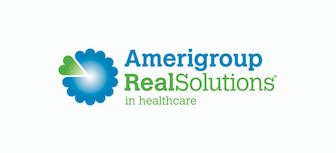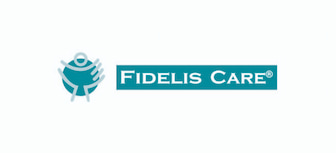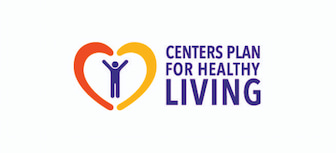How Do I Locate the Best Primary Care Doctors in Brooklyn?
Over half of New York City’s 1,300 healthcare facilities offer primary care. Finding a primary care doctor isn’t tricky, thanks to the broad network of medical professionals working in New York City. To find the best primary care doctor in Brooklyn, you must first understand the type of primary care doctor you need.
Common types include:
- Family medicine doctors. They care for all ages, from infants to seniors, addressing various medical issues and supporting multi-generational families.
- Internal medicine doctors. Called internists, they manage and treat complex and straightforward issues primarily for adults and seniors.
- Pediatricians. They care for children and focus on development and growth from birth through early adulthood.
- Obstetricians and gynecologists. They specialize in women’s health, focusing on reproductive conditions and offering support in family planning, childbirth, prenatal care and menopause.
- Nurse practitioners and physician assistants. They aren’t MDs, but trained professionals who work with doctors to provide routine care. They often serve as your primary care contact.
Once you’ve determined the type of primary care doctor you need, consider choosing a primary care physician, also called a PCP, who specializes in chronic conditions like diabetes or hypertension.
Ensure your Brooklyn primary care doctor is the best option for you by:
- Verifying credentials. Ensure that your PCP is board certified and has undergone extensive training and practice.
- Checking availability. If you think you’ll need it, check that they offer same-day or after-hours appointments near your home or office.
- Reading reviews. Look for reviews by past patients who’ve visited them to understand the environment and wait time.
- Confirming insurance. Make sure that your PCP accepts your insurance.
- Evaluating communication style. Ensure your doctor speaks your language and knows how to communicate in a way that makes you feel comfortable.
- Finding telemedicine options. See if your PCP offers virtual consultations, which can help you in the future with follow-ups for minor issues.
Can I Find a Female Primary Care Doctor in Brooklyn?
Female primary care doctors are common in Brooklyn healthcare practices. Look for one in your neighborhood. After finding a female doctor from the directory list, call the office and book your appointment.
Discussing medical issues with a female PCP is easier and more comfortable for many people. You may believe that female doctors create a foundation of trust that promotes communication.
Women usually prefer seeing a woman doctor because of a perceived increase in:
- Empathy
- Understanding
- Comfort
- Patient-centered care
- Ease of being able to talk about uncomfortable or embarrassing symptoms
Brooklyn is one of the most diverse boroughs in New York City, with residents from different cultures and ethnicities. Research shows that women account for 52 percent of the population. Statistics show that female doctors treated patients with a four percent lower mortality rate and spent more time listening to their patients and providing preventive care.
Are There Any Primary Care Doctors in Brooklyn Who Offer Same-Day Appointments?
To serve you better, many primary care doctors offer same-day appointments. It’s a wise choice, as they prevent ER visits and improve outcomes for infections and minor injuries. If you have a busy lifestyle and can’t find time, ask for a same-day appointment. Since the average wait time for a primary care appointment in Brooklyn is 20 to 24 days, same-day flexibility saves you from waiting.
Brooklyn’s population exceeds 2.5 million, and almost 12 percent of Brooklyn’s adults don’t have a regular primary care doctor. Get ahead of the game when you choose from among the best primary care doctors in Brooklyn.
To book an appointment:
- Choose a local NYC primary care medical practice that hold slots for urgent visits and walk-ins.
- Call or book an appointment online as early in the day as you can.
- Take advantage of telemedicine services that allow you to access your Brooklyn primary care doctor at more convenient times.
- Use concierge services that offer individualized care and focus on same-day appointments.
- Ask friends and family for referrals to same-day primary care doctors.
What Preventive Care Measures Does My Primary Care Doctor in Brooklyn Encourage?
Primary healthcare focuses on improving your overall health through preventive measures. Early detection of medical conditions reduces risk, which prevents chronic medical diseases like cancer, cardiovascular issues and diabetes complications. Primary care gives you a chance to manage your condition before it reaches a dangerous stage.
Preventive measures in primary healthcare include regular screenings and annual physical exams, as well as:
- Health screenings for conditions like hypertension, testing for cholesterol and blood sugar tests for pre-diabetes
- Cancer screenings, which may include mammograms, pap smears, HPT testing for women, colonoscopy, stool tests and low-dose CT scans for adults aged 50 to 80
- Vaccinations, such as flu shots, COVID-19 vaccines and boosters, tetanus, diphtheria shots and shingles vaccines
- Mental health screenings, with early detection of substance abuse and regular assessments for those with high stress
- Geriatric screenings like bone density scans, screening for dementia and other memory-related issues
Routine screenings also include HIV and STI testing and hepatitis C screening for patients born between 1945 and 1965. Book an appointment with your primary care doctor in Brooklyn now to reduce your risk of preventable conditions.
What Is a Primary Care Physician?
A primary care doctor is your first point of contact for healthcare. Your PCP provides basic care and makes necessary referrals for more intensive treatments or tests. Your Brooklyn primary care doctor focuses on improving your well-being by preventing and managing chronic conditions.
A PCP monitors your medications and adjusts treatment plans.
In addition to standard preventative care, the role of your Brooklyn primary care doctor includes:
- Timely management of infections, minor injuries and common medical diseases
- Management of digestive issues like acid reflux or irritable bowel syndrome
- Treatment for diabetes, hypertension and headaches
- Coordinated healthcare so all your health records reside with one doctor
Join the more than 60 percent of adults in Brooklyn who live with at least one chronic condition, which requires management by a primary care doctor. Rely on your PCP for healthy living guidance. Your doctor records your medical and family history to analyze patterns and habits that may harm you and then guides you to change them. Book an appointment now to improve your health.


 My BestDoc
My BestDoc
 Future Appointments
Future Appointments
 Settings
Settings
 Sign out
Sign out










